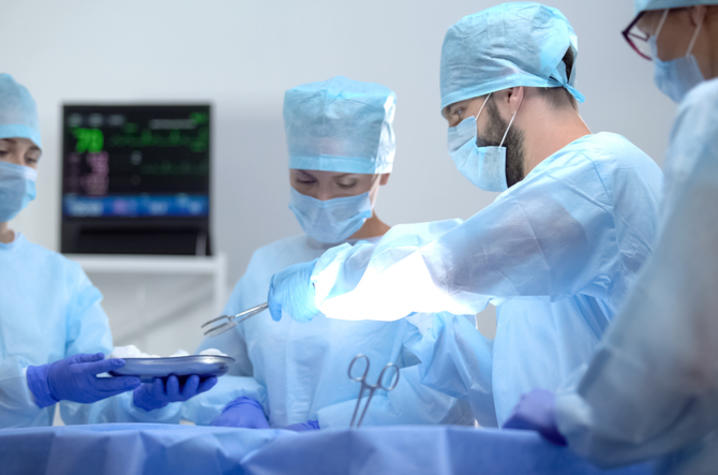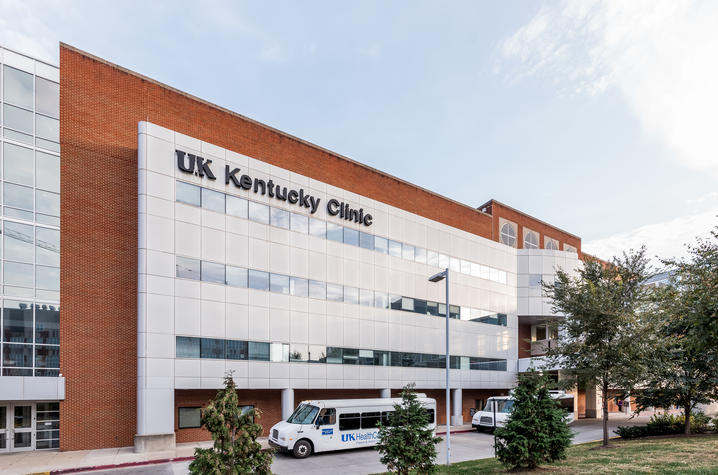What to Know about COVID-19 and Organ Donation
LEXINGTON, Ky. (May 8, 2020) –Nearly 1,000 people in Kentucky are waiting life-saving organs, and the transplant team at the University of Kentucky Transplant Center perform over 200 transplant surgeries a year. Hospitals around the world are adapting care around the COVID-19 pandemic, but transplant surgeries, and the need for donors is still just as dire.
COVID-19 is a new disease, and researchers are working around the clock to understand it. Based on what is known so far about the coronavirus and other infectious diseases, Dr. Malay Shah, surgical director of the liver transplant program at UK HealthCare, addressed questions about being an organ donor during a pandemic.
Can people who pass away from COVID-related complications still donate their organs?
Currently, patients who test positive for an infectious disease including COVID-19 cannot donate their organs.
If someone agreed to be a living donor tested positive but isn’t showing symptoms, can they still donate?
If someone tests COVID-19 positive, they cannot donate an organ as a living donor regardless of whether they are symptomatic or not. However, once they achieve two negative tests, then they could again be considered for donation.
Can a recipient who tested positive still get a transplant?
At this time, any potential recipient who tests COVID-19 positive will not be eligible for transplant until they clear the infection. Once they have two negative tests, they can be considered for transplantation. Unfortunately, there is not enough data at this time to know the potential impacts of immunosuppression on patients who also have COVID-19.
Do people who have had transplants need to take extra precautions during this time?
Patients who already have received transplants should practice social distancing and wearing of masks when not in their residence. Recipients should take extra care in hand hygiene and avoid sick people.
What new procedures are in place in the Transplant Clinic to protect compromised patients?
At the Transplant Center, we want to ensure the safety of immunocompromised patients. The Transplant Center has implemented many changes in policies and procedures allowing us to continue to deliver the same high-quality care in a safe environment. We phone screen patients for symptoms via phone prior to appointment and upon entry to UK. All staff, faculty, visitors, and patients are required to wear masks. Transplant Clinic staff also monitor the waiting room to ensure that patients and visitors remain at least six feet apart and will adjust to non-traditional waiting, such as patients waiting in car until called into the clinic, to ensure that patients are distanced and risk is reduced.
With the number of canceled commercial flights, are there any disruptions to the allocation and transportation of organs?
As of now, there does not seem to be significant disruption of transportation of organs. Commercial flight options are certainly more limited, but this does not seem to have impacted transportation of organs to UK HealthCare.
Visit Donate Life Kentucky to learn more about becoming an organ donor.
As the state’s flagship, land-grant institution, the University of Kentucky exists to advance the Commonwealth. We do that by preparing the next generation of leaders — placing students at the heart of everything we do — and transforming the lives of Kentuckians through education, research and creative work, service and health care. We pride ourselves on being a catalyst for breakthroughs and a force for healing, a place where ingenuity unfolds. It's all made possible by our people — visionaries, disruptors and pioneers — who make up 200 academic programs, a $476.5 million research and development enterprise and a world-class medical center, all on one campus.






